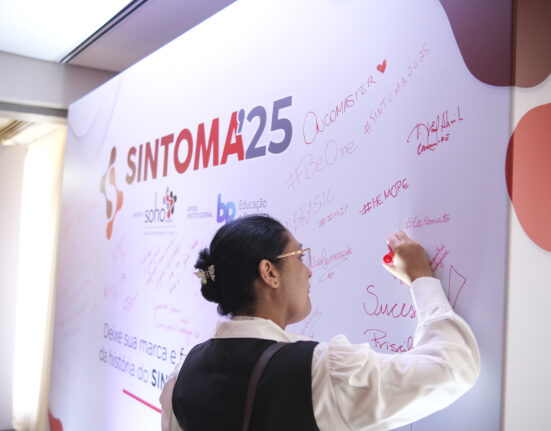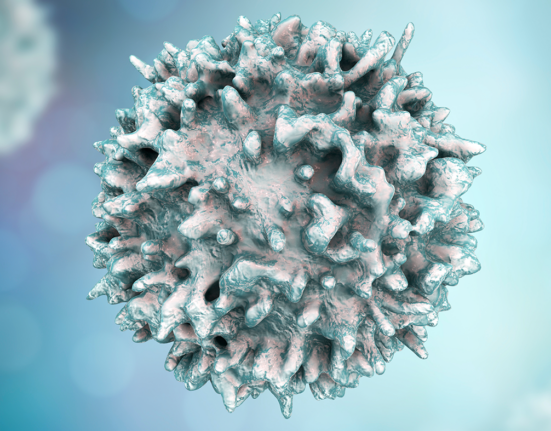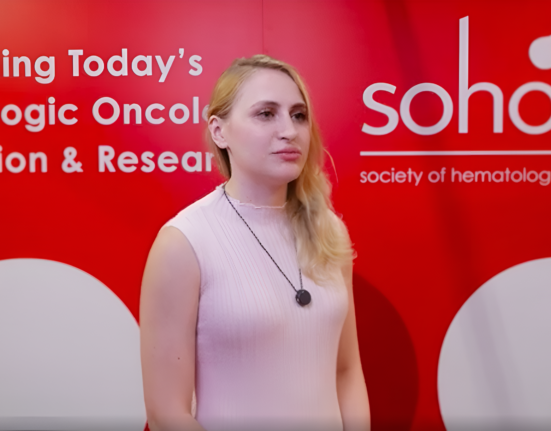“We go into medicine bright-eyed and bushy-tailed thinking, “I like science, and I want to help people.” I think that that’s a good motivating factor.”
The SOHO Young Investigator Program (YIP) supports aspiring hematologic oncologists to attend the Annual Meeting in Houston and provides the opportunity to meet with leaders in the field.
Meet Megan Melody, MD, an assistant professor at the University of South Florida (USF) and lymphoma and chimeric antigen receptor (CAR) T-cell therapy specialist at Tampa General Hospital Cancer Institute. In this YIP spotlight, Dr. Melody shares how the SOHO YIP award impacted her career growth and reveals how she balances her demanding role with a surprising passion for theater.
This interview has been edited for length and clarity.
SOHO Insider: How did you get started in medicine?
Dr. Melody: I am originally from New Hampshire, and I completed my undergrad at the College of the Holy Cross in Worcester, Massachusetts. I then worked in clinical research in cardiology for two years at Massachusetts General Hospital and completed a one-year master’s program at USF, which shares a campus with the Moffitt Cancer Center. Here, I worked as a clinical research coordinator. It was during my time at Moffitt that I was introduced to malignant hematologists in the department. I went onto medical school at USF, and it was because of these established relationships and my passion for malignant hematology that I was offered research roles to work on processing data for abstracts and publications.
SOHO Insider: When did you receive your first YIP award?
Dr. Melody: I think the first time I received a YIP award was in 2015. I was a second-year medical student when I applied to the program. It was my first time going to a large academic meeting, and I remember being intimidated; I brought multiple power suits to each meeting. We would go out for dinner, and I would be the only person dressed in a suit while everyone else wore jeans. I felt like such a nerd.
SOHO Insider: How did the first SOHO meeting you attended spark your interest in malignant hematology research?
Dr. Melody: The YIP award and attending the SOHO Annual Meeting have been paramount to my career. I wound up continuing to do research and presenting at ASH and Tandem. Primarily, my research now focuses on lymphoma and CAR T-cell therapy. After the first SOHO Annual Meeting I attended, I went on to finish medical school at USF, and then a residency at the Mayo Clinic in Jacksonville, where I did a lot of research in CAR T-cell therapy with Mohamed Kharfan-Dabaja. That’s where I got my feet wet with CAR T-cell therapy, and when I first started presenting at Tandem. Then I went into a fellowship at Northwestern, where a lot of my research is with Jane Winter in lymphoma, and Reem Karmali who helped me grow my CAR T-cell experience there. And Leo Gordon.
SOHO Insider: How has participating in YIP helped you grow, and why do you think it’s a valuable program for early-career clinicians?
Dr. Melody: There are many reasons. I love the SOHO meeting because it’s digestible. The same year I first attended SOHO, I also went to ASH for the first time. I remember struggling to figure out which sessions to attend and how to navigate everything—ASH and Tandem have so many different tracks. That’s not to disparage those meetings; they’re incredible.
But for a young investigator who is trying to understand the intricacies of hematology, SOHO is great because the meeting always has people who are leaders in the field who are presenting the research. Most of their oral presentations start with understanding of the disease, the treatment course, and then they go on to incorporate their views.
This past year there were a lot of interesting presentations on medical inequality and global health. Each session had non-US-based clinicians present research on their experience giving treatment outside of the United States.
Now that I’m an attending physician, obviously I find the presentations and oral abstracts at ASH very helpful, but for someone who is still just learning about CAR T-cell, they are not going to appreciate a 15-minute oral abstract on a niche or basic science part of CAR T-cell therapy. I had no idea what that was during medical school or residency.

Most medical students and residents can only go to an academic conference if they’re presenting. Even still, that’s often not funded. A lot of my friends have a budget during residency of $500 to $700. That’s not going to cover a conference attendance. If you can only pick one conference to attend, sometimes that limits the smaller conferences, especially in 2015 when I first started going to meetings.
The last thing I would say about the YIP program is something I always harp on for my residents and fellows. We never get any training on how to interact with pharmaceutical companies. I think watching my mentors model that behavior from a young age helped to shape my relationship with pharmaceutical companies, which is an essential part of academic medicine. Those are things that we are never taught in medical school. I know a lot of my colleagues felt a little lost when they graduated, and all of a sudden, all these people were reaching out to meet with them. Like, what do they want from you? Why do they want to meet with me? It was great having the experience of going to SOHO and getting to see those discussions firsthand from very early in my career.
SOHO Insider: What misconceptions did you have when you started practicing medicine that have now changed?
Dr. Melody: We go into medicine bright-eyed and bushy-tailed thinking, “I like science, and I want to help people.” I think that that’s a good motivating factor. I think I didn’t understand how much insurance dictates the care of my patients and how much I’d be interfacing with insurance companies.
SOHO Insider: Who were your most impactful mentors?
Dr. Melody: In every phase of my career while I’ve been training, I have been lucky to be mentored by the major movers and shakers in the field. At Moffitt, Julio Chavez, Eduardo Sotomayor, who’s now my boss—he recruited me to the cancer center, and Rami Komrokji, who supported my career through research.
Then I went over to Mayo Clinic where Dr. Kharfan-Dabaja mentored me in CAR T-cell therapy. At Northwestern, Drs. Gordon, Winter, and Karmali—that whole group—they’re all just amazing. Truthfully, I could never pick only one of them that was most impactful. They’re this powerhouse group that truly loves me as a person, a provider, and a friend.
SOHO Insider: What do you do when you’re not working?
Dr. Melody: This year, my husband told me that I didn’t have any hobbies, and the one thing you should never do is tell me I can’t do something. I decided that I was going to audition for a play, and I was casted as Little Red Riding Hood’s grandmother and Cinderella’s mother in Into the Woods.
SOHO Insider: What have you recently read?
Dr. Melody: I love Harry Potter, and there is a new fan fiction book that was all over my Instagram based on the premise of what would happen if Voldemort won rather than Harry Potter. Basically, it is about Hermione Granger, who is enrolled into a program (right out of The Handmaiden’s Tale) because she’s a Muggle-born. She winds up getting betrothed to Draco Malfoy—it’s scandalous.
Dr. Melody is an assistant professor at the University of South Florida and lymphoma and CAR T-cell therapy specialist at Tampa General Hospital Cancer Institute.
For more information on how to support SOHO and all of its programs, including the Young Investigator Program, go to soho.click/donate.







